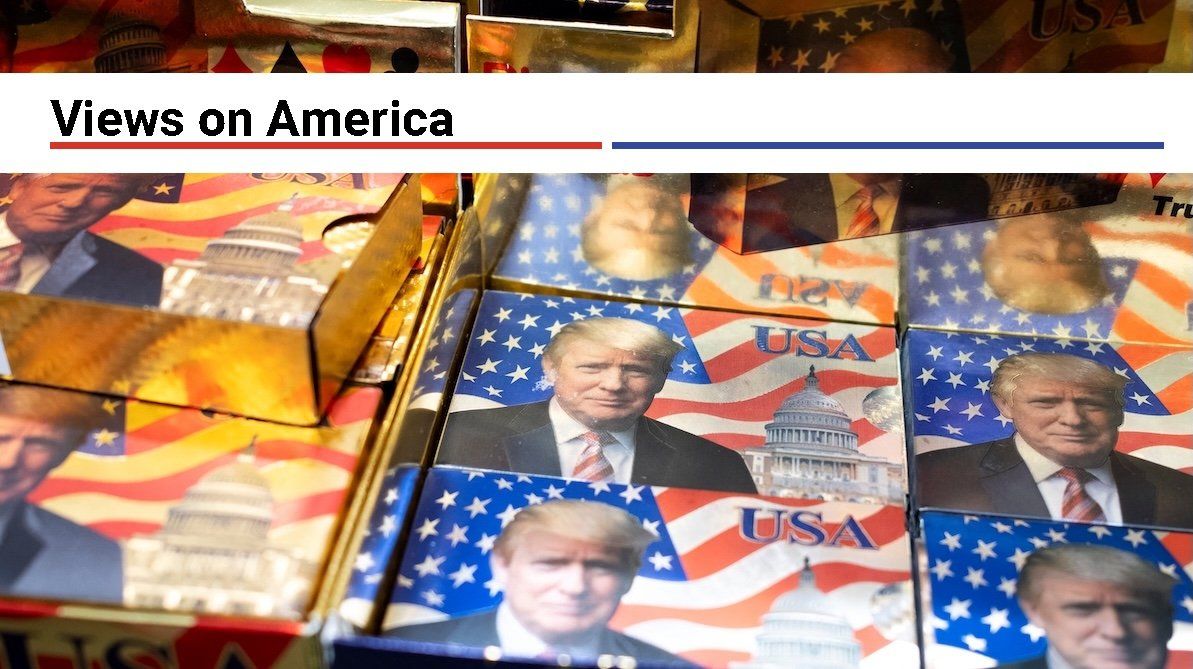On the 2016 campaign trail, Democratic presidential candidate Hillary Clinton was fond of repeating the truism: When someone shows you who they are, believe them. In a particular clip from August 2016, Clinton underscored her assessment of then-adversary and Republican presidential candidate Donald Trump by saying, “There is no new Donald Trump.”
Europe has been forced to confront this lesson once again in recent weeks. As the Trump 2.0 administration unveiled its foreign policy priorities, European leaders initially adopted a wait-and-see approach. They even held their breath for a window of opportunity around Ukraine. When Trump adjusted his ambitions to allow for a six-month timeframe to reach an agreement, after promising repeatedly on the campaign trail to end the war on his first day in office, European capitals felt buoyed that he was perhaps pursuing pragmatism.
All their cautious confidence has now left the room – only to be replaced by a rolling panic.
A period marked by Vice President JD Vance chastising Europe at the Munich Security Conference, high-level meetings between US and Russian delegations in Saudi Arabia, and Trump declaring Ukrainian President Volodymyr Zelensky a “dictator” on Truth Social has riled European allies and left them looking for solid ground. A televised White House meeting between Zelensky and Trump on Friday devolved from cordial to transparently contentious in just 45 minutes.
With no apparent points of leverage, Vladimir Putin has managed to bring the US significantly closer to Russia’s preferred position. At this weekend’s summit in London, European leaders were forced to face a familiar and devastating fact: Even an isolated Russia is capable of strategically shifting the conversation as long as Putin leads. No amount of economic pain, coordinated sanctions, or falling of Syria’s Assad regime has changed this.
A set of votes at the United Nations last week measured just how much things have changed. Three years ago, a March 2022 UN General Assembly resolution deploring Russian aggression against Ukraine in violation of the UN Charter was overwhelmingly adopted. The US joined 141 others in favor, while Russia found itself in the company of only four states. Last week, in an about-face, the US sided with Russia (and against its European allies) in two resolutions to mark the third anniversary of the conflict.
These votes reflect not only the gulf that has opened across the Atlantic; they also raise questions about the geopolitical landscape moving forward. After the March 2022 resolution, analysts began speaking fervently of a Global North-South world order. Russia and its near partners (those who stood against) – Belarus, North Korea, and Syria – and its sympathizers (the abstainers) – South Africa, China, India, and Bolivia against the US and Europe. Now, a question with long-term implications is emerging: How entrenched will the US pivot on Russia-Ukraine prove to be, and what does it mean for the future world order?
In the near term, European leaders are wrestling with how to manage the US president. Projects such asHarvard Law School’s Program on Negotiation categorize business negotiation styles from collaborative (I win – you win) on one end of the spectrum to avoidant (I lose – you lose) on the other. Negotiations are frequently circumstance-dependent, meaning that adopting a flexible approach responsive to the business at hand – and one’s adversary – is often advantageous.
Trump is, however, a predictable negotiator. His worldview always leads him to adopt a competitive (I win – you lose) approach in which heanchors a negotiation by “naming a price” early in the process, effectively bounding subsequent rounds. This is what is meant when his foreign policy is described as “transactional.”
With Colombia, for example, Trump threatened 25% tariffs that would escalate to 50% if it did not accept migrant flights. There was no win in these “negotiations.” Colombian President Gustavo Petro gave Trump what he wanted, and Trump backed off. Canada and Mexico were left in similar positions after Trump announced 25% tariffs. Each quickly made concessions to give Trump the win and reduce the economic pain at home. Both now face the hard news that their compromises were not enough, and levies are set to go ahead this week after the brief reprieve.
European allies would do well to remember that there is no new Trump. And there is evidence that some European leaders are beginning to update their model of him, accordingly. As part of a joint press conference last week held with Trump, French President Emmanuel Macron indicated that he and Europe were ready to help guarantee Ukraine’s security by sending troops to Ukraine. Not to be outdone, UK Prime Minister Keir Starmer preempted his own visit to the White House by announcing that British troops would also be available when needed.
Zelensky, who had a front line to Trump during his first administration, is also keenly aware of who he is. Anticipating a Trump 2.0 presidency, Zelensky’s team purportedly devised the idea for the US-Ukraine mineral deal, which the two were meant to sign in Washington on Friday.
In the closing minutes of their fruitless meeting,Trump warned Zelensky, “You’ve got to be more thankful because, let me tell you, you don’t have the cards. With us, you have the cards, but without us, you don’t have any cards.”
Trump prefers to hold all the cards, shuffle them at will, and throw down a new hand to the world’s surprise. Yet, even when the substance shifts – as it has dramatically over the last weeks in Europe – the process remains the same: Trump will be looking for the win.
Lindsay Newman is a geopolitical risk expert and columnist for GZERO.
